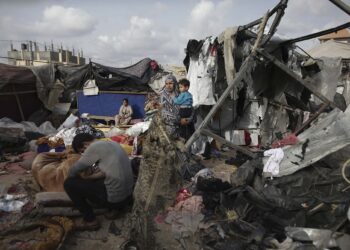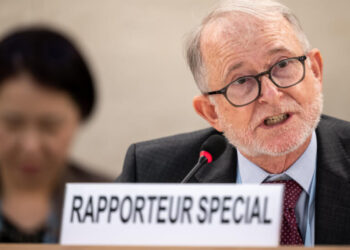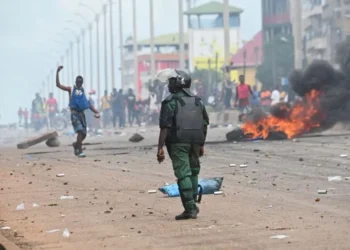Human Lives Human Rights: In a deeply concerning turn of events, the Amhara region of Ethiopia has become a focal point of distress as clashes between the Ethiopian National Defense Force (ENDF) and the local Fano militia persist. The situation has prompted widespread allegations of grave human rights violations, urging global attention to ensure accountability and justice.
Numerous media sources have reported a distressing airstrike that occurred this week in the Amhara region, resulting in the tragic loss of civilian lives. Further exacerbating concerns are allegations of large-scale killings and casualties in towns such as Finote Selam, Bahir Dar, and Shewa Robit. These distressing reports warrant thorough investigation to uncover the truth behind the alarming claims.
Against this backdrop of escalating violations, the Ethiopian government is under heightened scrutiny to uphold its obligations to human rights and transparency. In light of allegations of ongoing abuses in the Amhara region, urgent calls have emerged for the unhindered participation of the Independent Commission of Human Rights Experts on Ethiopia (ICHREE) and other independent investigative bodies. Moreover, the presence of independent media is indispensable to ensure comprehensive examination of the reported atrocities.
Concerns have deepened with the declaration of a six-month state of emergency by the Ethiopian government on August 4, 2023, encompassing the entire nation. This move follows a surge in violence within the Amhara region. The state of emergency grants sweeping authority to the government, enabling it to apprehend suspects without court warrants, impose curfews, restrict movement, and even prohibit public gatherings.
The management of the Amhara Region during this state of emergency has been placed under a command post led by the country’s intelligence chief, accountable to the Prime Minister. However, the terms outlined in the emergency proclamation remain vague and open to broad interpretation, with little judicial oversight. Furthermore, the government’s decision to detain individuals in informal centers without access to legal representation raises serious concerns about due process.
Internet access has been severed in the Amhara region since August 3, 2023, curtailing the public’s right to free expression and access to information. This deliberate restriction has evoked memories of past states of emergency in Ethiopia, marked by widespread arrests, prolonged detention without trial, and communication restrictions.
As the Ethiopian government assumes unchecked authority through the state of emergency, the blockage of internet services presents a challenge to monitoring the evolving situation in the Amhara region. In the midst of these developments, the international and regional community must not waver in their vigilance regarding Ethiopia’s human rights commitments.
It is now more imperative than ever that the Independent Commission of Human Rights Experts on Ethiopia, independent investigative bodies, and the media operate unhindered to shed light on the reported abuses. The restoration of justice, accountability, and respect for human rights in the Amhara region hinges upon the global community’s resolute demand for transparency and truth.
The ongoing unrest has roots in the collaboration between the Fano militia, Amhara Special Forces, and the Ethiopian National Defense Forces during their joint efforts against Tigrayan forces since November 2020. The subsequent Cessation of Hostilities agreement signed in November 2022 marked a turning point in these dynamics.
Regrettably, the Amhara region has witnessed grim episodes, including the ethnic cleansing of Tigrayans from Western Tigray in April 2022. This disturbing incident involved Amhara regional officials, the Amhara Special Forces, and the Fano militia, along with complicity from federal forces.
April 2023 brought the federal government’s announcement to dissolve regional special forces, including the Amhara Special Forces, with the aim of integrating their members into federal forces. This decision triggered protests within the Amhara region, reflecting the complex challenges of transitioning security forces.
Recent events have witnessed the Fano militia capturing major cities across the Amhara region, including Gondar and Debre Birhan. These gains prompted the federal government to declare a six-month national state of emergency, subsequently leading to the ENDF’s reclamation of these pivotal cities. The road ahead remains uncertain, with hopes pinned on transparent investigations and global attention to ensure justice and lasting peace.


















